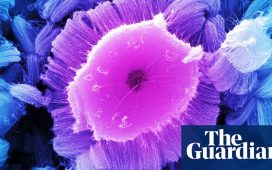Animal activists have reacted with fury after the Government gave the go-ahead for make-up to again be tested on animals.
Cruelty Free International said it was “outrageous” that the 25-year ban on animal testing for makeup ingredients had been lifted.
The policy change is to align with EU chemical rules, according to a High Court ruling that said the Government was acting legally in allowing testing after a case was brought by activists.
The BBC said that animal testing for makeup or its ingredients had been completely banned in the UK since 1998, with animal testing only been allowed if the benefits gained from research outweighed any animal suffering, for example for medicines.
But the European Chemicals Agency (ECHA), an EU agency which oversees chemical regulation, ruled in 2020 that companies needed to test some ingredients used in cosmetics on animals to ensure they were safe for workers manufacturing the ingredients.
READ MORE: ‘Scaremongering at its best!’ GMB slammed in Covid tests for pets row
A Home Office spokesperson told the BBC: “We are pleased that the High Court has agreed with the Government’s position in this case. The Government is committed to the protection of animals in science.”
During the case it was revealed that the Government had been issuing licences for animal testing of cosmetic ingredients in line with EU chemical rules, which it retained despite leaving the EU, since 2019.
This can include testing chemicals commonly found in foundations and concealers by forcing rats to inhale or ingest them. The BBC said it was not known how many licenses were issued or to whom.
Cruelty Free International (CFI), which brought the case, argued this was illegal and in breach of the animal testing ban.
But Mr Justice Levin ruled the change in policy met existing laws, although it was “regrettable” the public had not been informed.
Major beauty and cosmetic brands, including Unilever, Body Shop and Boots, criticised the verdict, while Cruelty Free International said it was “outrageous” that the government had effectively lifted the ban.
Christopher Davis, director of activism and sustainability at the Body Shop told the BBC they would “campaign vigorously” against the changes.
“Allowing animal testing for cosmetics would be a devastating blow to the millions of people who have supported campaigns to end this appalling practice,” he told the BBC after the ruling.
The ingredients that may be tested on animals include homosalate, a common sunscreen ingredient used in many foundations and skincare products.
In low doses homosalate is safe but in higher concentrations the evidence for its impact on the human immune system are inconclusive.
Mr Justice Levin said that nothing was stopping the Government from introducing an absolute ban on animal testing of makeup products if it desired.
Cruelty Free International CEO Michelle Thew said: “The case shows clearly that [the Government] was prioritising the interests of contract-testing companies over those of animals and the wishes of the vast majority of British people who are strongly opposed to cosmetics testing.”
It intends to appeal the decision.
Dr Julia Fentem, head of the safety and environmental assurance centre at Unilever, told the BBC that tests potentially required under the new policy were “unnecessary” and that safety tests could be carried out without animal involvement.











